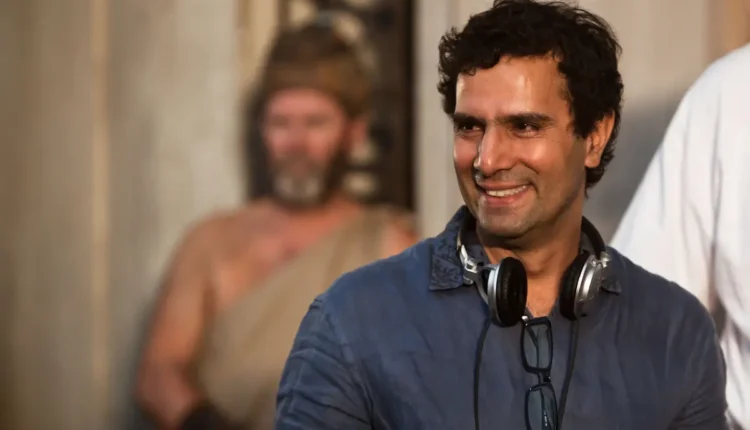In the vibrant tapestry of the film industry, where creativity intertwines with storytelling, Tarsem Singh Dhandwar emerges as a luminary whose cinematic journey has left an indelible mark.
Born on 26 May 1961 in Jalandhar, Punjab, Tarsem Singh Dhandwar’s trajectory from a small town in India to the glitzy landscapes of Hollywood showcases not just a director, but a true artist with a passion for pushing boundaries.
Early Life of Tarsem Singh Dhandwar: A Canvas of Inspiration
Tarsem Singh Dhandwar’s early life, rooted in the cultural richness of Punjab, provided a backdrop that would later influence his artistic vision. Born to a Punjabi Sikh family, his father’s profession as an aircraft engineer hinted at the skies Tarsem would eventually conquer in the realm of filmmaking.
The journey of education took him from Bishop Cotton School in Shimla to Hans Raj College in Delhi, and eventually to the Art Center College of Design in Pasadena, California. It was here that the seeds of his visual storytelling prowess were sown.
A Symphony of Visuals: Music Videos and Commercials
Tarsem Singh Dhandwar’s ascent into the world of directing began with a harmonious blend of music videos and commercials. His directorial debut, the music video for R.E.M.’s “Losing My Religion,” not only won the Best Music Video, Short Form at the 1992 Grammy Awards but also marked the beginning of a career that would redefine visual storytelling.
Commercials for global brands like Nike and Coca-Cola further solidified his reputation as a visual maestro.
From Music Videos to Silver Screens: The Directorial Debut
The transition from short-form storytelling to feature films was seamless for Tarsem Singh Dhandwar, as he unveiled his first feature film, “The Cell,” in 2000. Starring Jennifer Lopez, the film showcased Tarsem’s ability to create visually stunning and emotionally resonant narratives.
This was just the beginning of a directorial journey that would span genres and captivate audiences worldwide.
Elaborate Narratives and Cultural Influences: The Fall and Immortals
Tarsem’s second feature film, “The Fall,” premiered at the 2006 Toronto International Film Festival, revealing his penchant for elaborate storytelling.
The intricate fusion of visuals and narrative set the stage for subsequent successes, including “Immortals” in 2011. Each film became a canvas for Tarsem to weave tales that transcended conventional cinema, earning him acclaim for his ability to merge fantasy with profound storytelling.
Mirror Mirror and Beyond: A Visionary in Hollywood
In 2012, Tarsem directed “Mirror Mirror,” a reimagining of the Brothers Grimm’s “Snow White” tale, starring Julia Roberts. The film showcased his versatility as a director who could seamlessly transition between genres.
“Self/less” in 2015 further underscored his ability to craft compelling narratives, making him a sought-after name in Hollywood.
The Return to Music Videos and a Super Bowl Triumph
After a hiatus of 26 years, Tarsem marked his return to music videos in 2020 with Lady Gaga’s “911.” His unique visual language, honed over decades, once again graced screens, proving that his creativity knew no bounds.
In 2021, Tarsem Singh Dhandwar’s Super Bowl ad for Toyota, featuring the adoption journey of US Paralympian Jessica Long, garnered critical acclaim, reaffirming his ability to create impactful storytelling even within the constraints of commercials.
Dear Jassi: A Personal Odyssey
In 2023, Tarsem Singh Dhandwar unveiled “Dear Jassi” at the Toronto International Film Festival, a poignant true-crime story set in 1990s Punjab. The film explores themes of love, class, and murder, drawing inspiration from a real-life tale that had lingered in Tarsem’s mind for over two decades.
The decision to shoot the film in Punjabi, with a cast that eschewed Bollywood stars, speaks to Tarsem’s commitment to authenticity and storytelling purity.
From Hollywood to Punjab: A Director’s Homecoming
“Dear Jassi” is more than a movie; it’s a homecoming for Tarsem. The film, rooted in the societal pressures and complexities of Punjab, reflects not just the director’s skill but also his understanding of the human condition.
Tarsem’s personal connection to the events depicted adds layers of authenticity to the narrative, allowing audiences to glimpse into a world where love and societal expectations collide.
A Folk Tale Unveiled: The Artistry of “Dear Jassi”
In “Dear Jassi,” Tarsem transforms a true-crime drama into a folk tale, reminiscent of Shakespeare’s timeless narratives. The film’s format, coupled with narrative verses by singer Kanwar Grewal, adds a poetic touch that elevates the storytelling to a cinematic crescendo.
Tarsem’s decision to eschew stars in favor of lesser-known talents underscores his commitment to storytelling over star power.
The Future: A New Chapter in Indian Cinema
With “Dear Jassi” receiving accolades and winning the Platform Prize at the Toronto International Film Festival, Tarsem’s return to Indian cinema is marked by triumph.
As he contemplates future projects in India, his enthusiasm is palpable. “A massive Indian action flick” is on the horizon, promising a new chapter in Indian cinema under the directorial mastery of Tarsem Singh Dhandwar.
Also Read : Australian Student Visa Time Linked to University Choice

